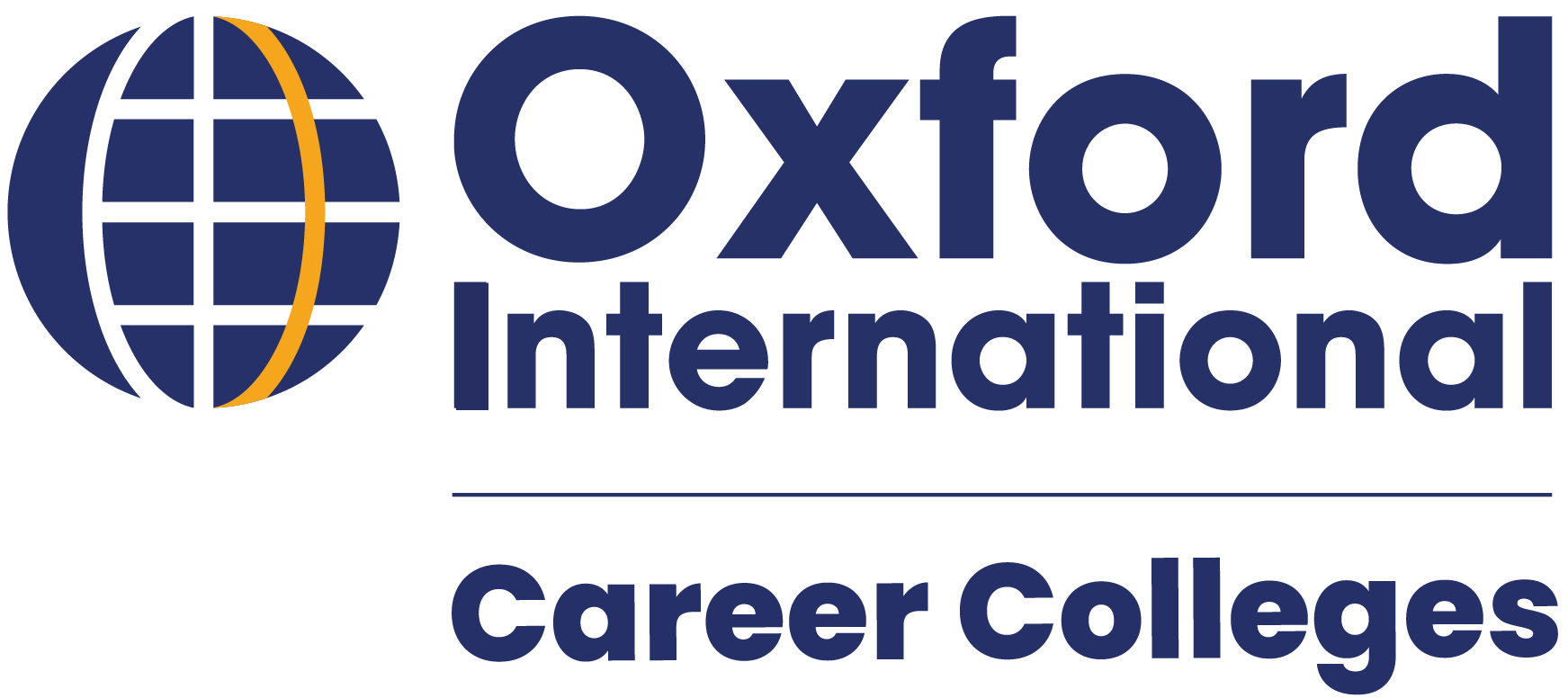Home Support Worker (HSW) Certificate II Program
- Achieve a recognized healthcare credential
- Train for an in-demand field with career growth opportunities in Ontario
- Build on-the-job skills through interactive lab sessions and guaranteed clinical placements
- Get access to Career Academy Canada and develop career readiness skills for success in the workplace
- Flexible learning options with hybrid program delivery
Get Started
Program Duration
25 Weeks | 455 hours
Credential
Certificate II
Location
OICC Toronto campus
Teaching Method
Hybrid
Get started on your Home Support Worker career path
About the Home Support Worker (HSW) Program
Begin a successful career path in healthcare and learn how to provide meaningful support and care to individuals in need. Our Home Support Worker (HSW) Certificate program gets you into the workforce quickly while providing the knowledge, practical skills, and experience employers are looking for.
Once you complete our Home Support Worker (HSW) program, you will be qualified to provide individuals with support for daily activities in community-based settings such as private homes and retirement homes in Ontario. As this is a NACC-licensed Home Support Worker (HSW) program, students also have the opportunity to earn a NACC digital credential, providing they successfully complete the NACC Final Exam with a minimum passing grade of 65%.
What Will Students Learn?
The Home Support Worker (HSW) Certificate program equips students with the necessary knowledge, hands-on skills, and soft skills required to provide respectful and appropriate care to individuals in retirement homes and home settings. Beyond the program courses, students participate in interactive lab sessions and clinical placements under the guidance of experts in the field:
- 355 hours of in-school theory and practice through interactive lab sessions
- 100 hours of Clinical Placement (Community)
Develop all knowledge and core competencies HSWs require
Gain valuable insights from instructors that are experts in the field
Build critical skills through guaranteed clinical placements
Earn your Standard First Aid & CPR Level C certification

$42,307
average annual salary in Ontario
Good
job prospects in Ontario for HSWs in the next 3 years (4 out of 5 stars)
Home Support Worker Career Opportunities
Home Support Workers assist with the tasks of daily living through activities such as preparing meals, shopping, bathing, housekeeping, and assisting with social and recreational activities. The range of services provided by a Home Support Worker is determined by the individual needs of each client.
The Government of Canada Labour Market Information reports that the employment outlook will be good for Home Support Workers (NOC 44101) in Ontario for the 2024 – 2026 period. The growing and aging population in Ontario will increase demand for workers and there are continued investments to increase care and capacity at long-term care homes in addition to various initiatives supporting home and community-based care. In fact, up to 24,000 new Home Support Workers and Personal Support Workers will be needed by 2026.
Data reported on the Government of Ontario Job Bank.
Our Home Support Worker Certificate program is designed to meet the demand for qualified and high-performing HSWs in Ontario by equipping our graduates with the right knowledge and skillsets required to succeed in this rewarding field. We’re here to help you get started on your new career path. Once you graduate from our Home Support Worker Certificate program, popular career path options include:
- Home Support Worker (HSW)
- Personal Aide – Home Support
- Respite Worker – Home Support
- Attendant for Persons with Disabilities – Home Care
Program Courses
Our Home Support Worker (HSW) program is licensed by NACC (National Association of Career Colleges), which means its content, standards, and guidelines are relevant, up-to-date, and in line with industry requirements. The NACC program was developed and is maintained by a committee of academic and industry experts.
During the HSW program, our students learn from highly qualified instructors that have years of experience in the field as PSWs, HSWs, or equivalent. Through our quality curriculum, students not only develop a solid foundational knowledge of Canadian healthcare protocols and general knowledge all HSWs should have, but they also develop valuable real-world skills during interactive lab sessions, putting classroom knowledge into practice.
HSW Foundations
The introductory module provides an overview of the scope of responsibilities of HSWs in a variety of settings. Students will learn about client-centred versus client-directed care; and emphasizing the individuality of the client and his/her relationship with family, friends, and others. Key topics include work relationships, stress and time management, interpersonal skills, and communications, including conflict resolution and problem solving, and applicable legislation.
Safety and Mobility
The second module covers safety as it relates to both the client and the worker. One of the fundamental activities of the HSW is that of assisting the client with routine activities of living. Students will learn about risks of unsafe equipment or settings and appropriate actions to take when unsafe situations are identified. Topics include infection control methods, body mechanics, and transferring and lifting techniques using equipment to increase safety and reduce client anxiety.
Body Systems
This module will introduce the student to the basics of anatomy and physiology. Students will gain an understanding of human body systems in order to apply that knowledge in their daily work as a Home Support Worker. These body systems are: the musculoskeletal, digestive, urinary, integumentary, reproductive, cardiovascular, respiratory, nervous, and endocrine. Common disorders and age-related changes for each body system will also be covered.
Assisting with Personal Hygiene
HSW’s assist clients with all activities or routines of daily living. Students will learn how to care for the ill, disabled, injured and/or confused client. Frailness, dignity, and levels of dependence will be considered. Personal hygiene includes oral care, perineal care, bathing, grooming, dressing, bed
making, shaving, hair care, and skin care. It includes mobility considerations and involves personal safety, self-esteem, and dignity. The foundation of this module is humanistic health care.
Abuse and Neglect
This module introduces students to the concepts of violence and abuse, including its possible signs, and the appropriate actions and legal requirements if abuse is suspected. Personal beliefs and attitudes about family violence and abuse are examined, as is the concept of worker abuse of the client and, abuse of the worker. HSWs will learn to recognize both indicators and causes, and the requirements of legislation, employer policy, and provisions of the service contract or support plan.
Household Management, Nutrition and Hydration
Students will learn to assist the client with their nutritional needs, household activities, and household management according to client preferences, comfort and safety within employer guidelines as required. Nutritional needs include planning balanced menus, preparing shopping lists and shopping, safe handling of food, and storage and specific cooking techniques. The special dietary needs of certain clients and their cultural and religious preferences will all be addressed.
Care Planning / Restorative Care / Documentation / Working in the Community
This module identifies the support provided through the care plan or service contract to the client to relearn or regain routine abilities. They will understand its significance, and the rights of the client as a receiver of support and the purpose, methods, and persons involved in its creation. Student will also be introduced to working in the community health care environment, providing support to patients and families in communities, conducted in accordance with employer guidelines.
Assisting the Dying Person
In this module students learn about hospice, palliative and end-of-life care, the integration of a palliative approach to care, ways of being, communication and practical strategies to provide psychosocial support and physical comfort care for both the person and their family. This module
addresses provincial palliative care competencies (2018-2020) including competencies for caring for First Nation, Inuit, Metis, and urban Indigenous peoples.
Cognitive and Mental Health Issues and Brain Injuries
This module introduces students to common psychiatric conditions such as affective disorders, schizophrenia, substance abuse, cognitive impairment, and brain injury. The possibility of multiple conditions such as Alzheimer’s disease and depression will be discussed along with the role of the family
caregiver and the importance of observation, documentation, and reporting in order to recognize changes in behaviour that can be related to psychiatric conditions or an increased risk of suicide.
Workshop I: Gentle Persuasive Approaches in Dementia Care
Gentle Persuasive Approaches (GPA) is a multi-disciplinary education program designed for everyone who interacts with older adults in the workplace. Participants are guided to fully understand responsive behaviours in order to be able to respond effectively and appropriately in a workplace setting.
Workshop II: Standard First Aid and CPR Level C
Comprehensive 15-hour course offering first aid and cardiopulmonary resuscitation (CPR) skills for those who need training due to work requirements or who want more knowledge to respond to emergencies at home. Course meets legislation requirements for provincial/territorial worker safety and insurance boards and includes the latest first aid and CPR guidelines.
Workshop III
This module will introduce the student to some of the foundation skills valued in the workplace. Communication, teamwork, problem solving and critical thinking are discussed and explored with professional techniques highlighted and practiced. Successfully working with diverse populations is a key focus of this course.
Program Clinical Placements
As part of the HSW program, students are also required to participate in 100 hours of clinical placements in a full-time (40 hours per week) or part-time (20 hours per week) capacity.
These program placements are a fantastic way to not only build real-world skills but also improve your confidence and help you learn how to engage with clients in an appropriate manner. At OICC, we have a 100% practicum placement rate, meaning we guarantee our students will get the valuable opportunity to experience working as an HSW. We ensure placements are guaranteed by developing close relationships with various community facilities.
Community Placement | 100 Hours
Throughout this Community Placement, students may be sent to sites such as home care services providing care to clients in their own homes, supportive housing, attendant outreach, retirement homes, education settings, group homes, adult day programs, and hospice programs. This placement will help develop and enhance the skills that they have gained throughout their theory and lab practice of the program. Skills and responsibilities include, but are not limited to:
- Recognizing/identifying changes in client’s behaviours/conditions and reports changes
- Understands the use of medical terms, abbreviations and the 24-hour clock
- Safely operates and cleans equipment
- Assists with hygiene/grooming/dressing & surroundings
- Works with the client’s abilities promoting safety, security, dignity and independence
The students will spend time working in a community setting under the supervision of a preceptor provided by the host site.
Career Academy Canada
In today’s increasingly competitive job market, it can be overwhelming to navigate the professional world and understand what skills and attributes employers are looking for.
With Oxford International’s Career Academy Canada, we partner with you to:
- Identify, develop, and map out your career plan
- Build the skills you need to achieve your goals
- Expand your industry and employer networks in the field you’re interested in


PSW Program Start Dates
July 21st, 2025
August 18th, 2025
July 21st, 2025
August 18th, 2025
October 6th, 2025
October 6th, 2025
December 1st, 2025
* The schedule is subject to change
About our OICC Toronto Campus

111 Peter Street #220, Toronto, ON M5V 1X1
Study in the heart of downtown Toronto, walking distance from the CN Tower, Rogers Centre, and Scotia Bank Arena. Our OICC Toronto campus is centrally-located with easy access by public transit and car, with parking available just across the street.
Our bright and modern classrooms, fun student vibe, and highly-qualified instructors foster a vibrant learning environment where you feel inspired to dig into your studies and achieve your career goals!
Before You Apply to the HSW Program
Scope of work as an HSW
The job of an HSW involves caring for people of all ages, genders, and ethnic backgrounds. An HSW will be providing personal care and companionship for seniors, persons with disabilities, and convalescent clients. The range of services provided by an HSW is determined by the individual needs of each client and may include assistance with routine activities of living including personal care, mobility, home management, meal preparation, family care, and assisting with social and recreational activities.
Students taking the HSW program understand that it is a requirement of the program and the work of an HSW to adhere to the Canadian Character of Rights and Freedoms which states that all individuals have the right to equality before and under the law without discrimination based on race, ethnic origin, colour, religion, gender, age of mental or physical disability.
Difference between an HSW and PSW
What is the difference between an HSW and a PSW?
Both Home Support Workers and Personal Support Workers are healthcare professionals that support individuals with daily activities, but there are some key differences.
Types of Clients:
HSWs work with clients who have less complicated needs and generally need help with more day-to-day activities. PSWs work with clients that typically have more complex health needs.
Types of Tasks:
HSWs help with daily living tasks like preparing meals, housekeeping, and shopping. PSWs may help with similar tasks as HSWs depending on if they work in homecare or in a facility, but they also support toileting, bathing, medication management, etc.
Types of Work Settings:
HSWs work in community-based settings such as private homes and retirement homes, whereas PSWs typically work in healthcare institutions.
Types of Training:
HSWs and PSWs get very similar training, but HSW programs are a lighter version of PSW training. PSWs also require additional certifications including first aid and CPR.
PSWs also require training using medical equipment like mechanical lifts whereas HSWs are not permitted to assist with these.
Program fees
OICC Toronto campus is currently offering a $500 CAD scholarship for Home Support Worker (HSW) Certificate II program tuition! Applicable for all students.
Program Fees for Domestic Students
| Tuition | Application | Uniforms | NACC Final Exam | Scholarship | Total |
| $4,195 | $100 | $200 | $100 | $500 | $4,095 |
Program Fees for International Students
| Tuition | Application | Uniforms | NACC Final Exam | Scholarship | Total |
| $9,195 | $500 | $200 | $100 | $500 | $9,495 |
Available scholarships
Available Scholarships for All Students
At OICC | Oxford International Career Colleges, there are a number of unique scholarships available to students that help you save big on tuition while rewarding you for your hard work and academic performance! Visit our Scholarships page to learn more about which scholarships you may be eligible for and how you can save up to 50% off your program tuition!
For the PSW program, all students are also eligible to receive a $500 program scholarship.
Available Scholarships for Domestic Students
For the May 2025 intake, we are offering all domestic students a special scholarship – pay $3,500 for all program fees and also receive $1,500 back when you successfully graduate from the program. In the end, that means you are only paying $2,000 for your high-quality HSW training!
Level II HSW Certification
Upon graduation from our Home Support Worker (HSW) program, you will have earned your Level II Certificate which qualifies you to work as a Home Support Worker or in a related position in Ontario. The Level II designation is determined by the Government of Ontario as part of the Ontario Qualifications Framework and is based on the number of program hours. Learn more on the Government of Ontario website.
Accommodation
Through OICC Toronto campus, we have three affordable accommodation options to choose from:
1. Fully-furnished shared apartments with private bedrooms through HOEM Student Residence.
2. Fully furnished single rooms through the Canadian College of Naturopathic Medicine (CCNM) student residence.
3. Full-board, half-board, or roomstay with a local family through Homestay.
Admission Requirements for the HSW Program
Secondary School requirements
Applicants must provide proof of Secondary School education or equivalent through one of the following:
- Canadian Grade 12 Certificate, Diploma, or GED
- International Grade 12 or higher
- A student with a score of 11 or higher on the Wonderlic SLE (or other approved Ministry test)
Note: CAT and CAST are no longer eligible.
Language requirements
English language proficiency is demonstrated through one of the following:
- Academic IELTS 5.5 (no band below 5.5)
- Canadian Language Benchmarks Placement Test (CLBPT) minimum score of 7 in each strand
- TOEFL IBT 80 with the minimum in each component: Reading 20; Listening 20; Speaking 20; Writing 20
- CAEL Overall 60 with no section below 60
- Canadian English Language Proficiency Index Program (CELPIP) 7 with no section score below 6
- Duolingo English Test minimum score of 95
- Pearson PTE Academic minimum score of 46
- NACC Written Entrance Exam passing score of 60
Alternatively, applicants who are able to demonstrate 2 years of consecutive full-time academic study where the language of instruction was English are exempt from supplying an English proficiency exam for admission into OICC HSW program.
Other requirements
Applicants must also provide:
- A clear Vulnerable Sector Disclaimer
- A signed Medical Disclaimer
Applying to the HSW Program
I'm ready to apply
In order to apply to our Home Support Worker (HSW) Certificate program, please fill out an online application. Once you submit your application, our Admissions team will be in contact with you within a few days to confirm the next steps.
If you aren’t sure that you can meet the admission requirements for the program, we recommend you connect with your Oxford International representative to learn more. If you do not have the English levels required, OICC Toronto campus offers pre-sessional English programs that prepare you to succeed on an approved language level test. See Language requirements for more details.
I applied to the program
Well done! You’ve taken your first step towards a bright new future as a Home Support Worker in Ontario.
Our Admissions team will review your application and any supporting documents. We know you’re eager to hear back from us and we’ll be in contact as soon as possible.
I received my conditional offer letter
Please read your conditional offer letter carefully and keep it safe! You’ll see the list of what you need to do to start your program at OICC Toronto campus. Please remember that it is your responsibility to meet any requirements or conditions outlined in your conditional offer letter.
In the conditional offer letter, we outline the start date we’ve offered you, the fees you need to pay, and any additional conditions you are required to meet before you enroll.
You are now able to book your HSW program interview to ensure you are a suitable candidate to begin the program. Your conditional offer letter will outline the steps you need to take to book your interview, including paying your application fee.
I passed my program interview
Congratulations! You have now met one of the major requirements shown on your conditional offer letter! Only those applicants that demonstrate they are a good fit for the HSW program pass their interview.
For Domestic Students
You will now be issued your official offer of admission and be permitted to enroll as a student in the OICC HSW program!
For International Students
You are now required to pay your tuition deposit and will be issued your Letter of Acceptance (LoA) and Provincial Attestation Letter (PAL). These are required documents in order to apply for your visas.
Apply for the Study Permit visa within 10 weeks of receiving the LoA and PAL. You also need to apply for the Co-op visa at this time.
I received my study and co-op work permits
For International Students:
Congratulations! You are now ready to begin your journey to becoming an HSW.
Read your documents carefully because they will say when you are able to travel. Do not travel before this date because you may be turned away at the border and this could impact your ability to enter Canada later on. Do not book flights or make travel arrangements until you have received confirmation from OICC that you have been given a seat in the program. We will tell you if there is still space for the program start date you have selected.
It is important that you arrive in time for the start of your program. With such an intensive program, we do not allow students to start late. Late starters would miss valuable learning and experiences. If you think you will not be in Canada in time for your program start date, please notify OICC Toronto campus immediately.
